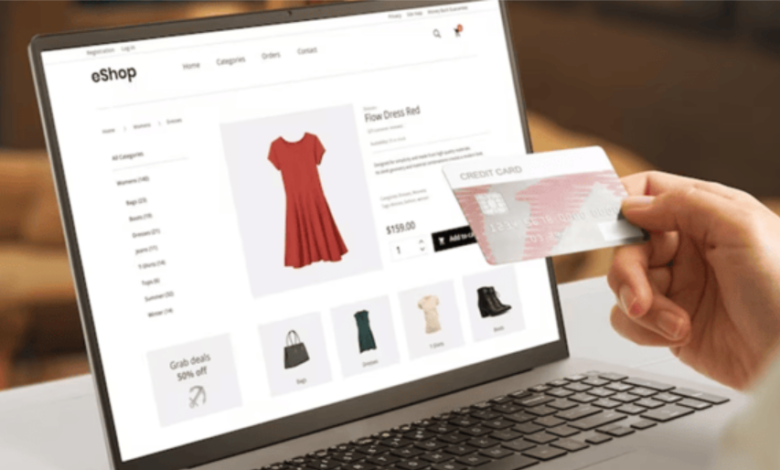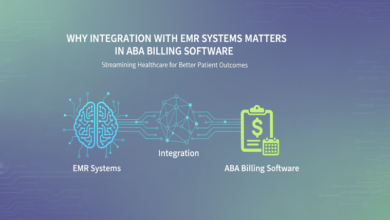Why Partnering With a Retail App Development Company Drives Sales

The retail industry has entered a mobile-first era. In 2025, smartphones account for nearly 80 percent of all retail website visits worldwide, underscoring how consumers shop, browse, and buy on the go.
Retail apps are no longer an optional add-on. They’re a primary sales channel. From product discovery to checkout, buyers expect seamless, fast, and personalized experiences. Businesses that ignore this shift risk losing relevance and revenue.
However, building an effective retail app isn’t just about having an online storefront. It’s about crafting an ecosystem where user experience, performance, and analytics work together to increase engagement and conversions. This is where partnering with a retail app development company becomes a strategic advantage.
Such partnerships help retailers create scalable, feature-rich, and customer-focused apps that directly impact sales and loyalty.
In this blog, we’ll break down how expert development partners help retailers design, scale, and optimize apps that turn casual browsers into repeat buyers.
1. Leveraging Expertise to Build User-Centric Retail Apps
A professional retail app development partner understands that success starts with empathy for the user. Every design choice, button placement, and feature impacts the buying journey.
- Deep understanding of consumer behavior: Top developers analyze how shoppers browse, search, and make decisions. Insights from behavioral analytics help design intuitive layouts that shorten the path to purchase.
- Seamless shopping experience: Retail apps must reduce friction at every step, provide quick product search, smooth cart management, and secure checkout. Developers bring proven UX frameworks that ensure clarity and consistency.
- Custom features for niche segments: A fashion retailer, for instance, may need virtual try-ons, while a grocery chain benefits from recurring order options. A tailored approach ensures each feature matches customer expectations and business goals.
When done right, retail apps outperform web stores in conversions. Studies show that retail apps have an average install-to-purchase conversion rate of 1.38%, higher than many other app categories.
2. Personalization and AI-Powered Recommendations
Modern retail thrives on relevance. Customers engage more when the app “understands” them. AI-driven personalization enables exactly that.
- Dynamic recommendations: Machine learning models analyze browsing and buying history to suggest relevant items in real time.
- Custom content delivery: Homepages, banners, and offers change based on user segments, maximizing click-throughs.
- Predictive engagement: AI anticipates user intent, such as sending a price drop alert or restock notification at the right time.
Personalized retail apps improve satisfaction and repeat purchases. A good development partner integrates these AI systems without bloating the app, ensuring smooth performance while keeping data secure.
3. Accelerating Customer Engagement and Retention
The best retail apps don’t just attract downloads; they keep users coming back.
- Push notifications and loyalty programs: Relevant notifications about discounts or restocks remind users to return. Loyalty systems such as points, cashback, or tiered memberships reward consistent engagement.
- Enhanced usability: Simplified navigation and clean UI layouts improve session duration. Developers test each element to ensure minimal cognitive load for users.
- Turning users into repeat buyers: Features like saved carts, one-click reorders, and personalized suggestions make shopping effortless. Each repeat visit increases customer lifetime value (CLV).
When engagement compounds, sales follow naturally. Apps with strong retention often report up to 3x higher order frequency than web users.
See also: How Smart Home Technology Is Redefining Interior Design
4. Omnichannel Integration
Retail success depends on consistency. Customers move between physical stores, websites, and apps, and expect a unified brand experience everywhere.
A skilled development company ensures the app integrates seamlessly with existing retail systems:
- Unified inventory management: Real-time stock updates prevent overselling and build trust.
- Shared customer data: Preferences and purchase history remain consistent across platforms.
- Cross-channel promotions: Coupons or loyalty points earned in-store can be redeemed in-app.
Omnichannel integration isn’t just a convenience; it strengthens customer relationships and brand credibility.
5. Improving Operational Efficiency and Scalability
Behind every smooth customer experience is a robust backend system. Custom-built apps streamline retail operations by connecting data, logistics, and payment systems into one cohesive flow.
- Smarter inventory control: Real-time inventory sync reduces manual errors and ensures accurate product availability.
- Frictionless checkout: Integrated payment gateways, such as supporting cards, wallets, and UPI, speed up transactions. Developers optimize load times and payment APIs to reduce drop-offs.
- Scalability for peak seasons: Retailers often face high traffic during sales or holidays. Scalable architectures ensure the app performs reliably even during demand spikes.
This operational resilience leads to faster fulfillment, fewer errors, and happier customers, all key to sales growth.
6. Security and Compliance Considerations
Data protection is non-negotiable in retail app development. Customers share sensitive information, and one breach can damage trust permanently.
A professional development partner implements:
- End-to-end encryption for transactions
- Secure authentication methods (biometric, OTP)
- Compliance with PCI DSS, GDPR, and regional standards
Regular audits and threat assessments further protect data integrity. Secure systems not only prevent losses but also reassure users, improving conversion rates.
7. Driving Measurable Sales Growth with Data-Driven Insights
Retail apps generate vast amounts of data, like every click, search, and purchase tells a story. Expert developers help retailers harness this data through built-in analytics dashboards.
Key data-driven benefits:
- Optimized marketing: Track which campaigns bring the most conversions.
- Customer journey mapping: Identify friction points in browsing or checkout.
- Feature performance tracking: Determine which tools drive engagement or require updates.
Over time, this feedback loop allows continuous app improvement, leading to higher sales and lower churn.
Challenges of Partnering With a Retail App Development Company
While collaboration offers significant benefits, it also presents certain challenges that retailers should prepare for:
- Misaligned expectations: Without a shared vision, projects can veer off-course or exceed timelines.
- Integration complexities: Existing ERP or POS systems might not easily sync with the new app architecture.
- Scalability trade-offs: Failing to plan for future user growth can cause performance bottlenecks.
- Post-launch support gaps: Some vendors limit maintenance to short periods, leaving brands unprepared for future updates.
Acknowledging these challenges early helps retailers set clear requirements, timelines, and accountability with their chosen partner.
Best Practices for Choosing the Right Retail App Development Partner
To ensure success, follow these proven practices when selecting your app partner:
- Assess domain expertise: Choose firms with retail-specific case studies and a clear understanding of buyer psychology.
- Prioritize transparency: Request milestone-based progress updates and detailed reporting.
- Validate tech stack and scalability: Ensure the development framework supports future growth and easy integration with existing tools.
- Review post-launch support: Long-term maintenance, version upgrades, and data monitoring should be part of the contract.
- Test security protocols: Confirm that encryption, authentication, and data privacy measures meet global standards.
The right partnership is not just about development skills; it’s about shared accountability for performance and growth.
Conclusion: Making the Strategic Choice to Partner with Experts
The digital commerce race is no longer about who sells online; it’s about who delivers the most engaging, reliable, and data-driven experience. Partnering with a specialized development firm ensures every part of your app is optimized for conversion, performance, and scalability.
From AI-powered personalization to integrated loyalty systems and backend optimization, expert-built retail apps empower businesses to sell smarter and retain longer.
In a competitive market, collaboration with a retail app development company isn’t just a cost; it’s a multiplier for growth, customer satisfaction, and long-term brand loyalty.




